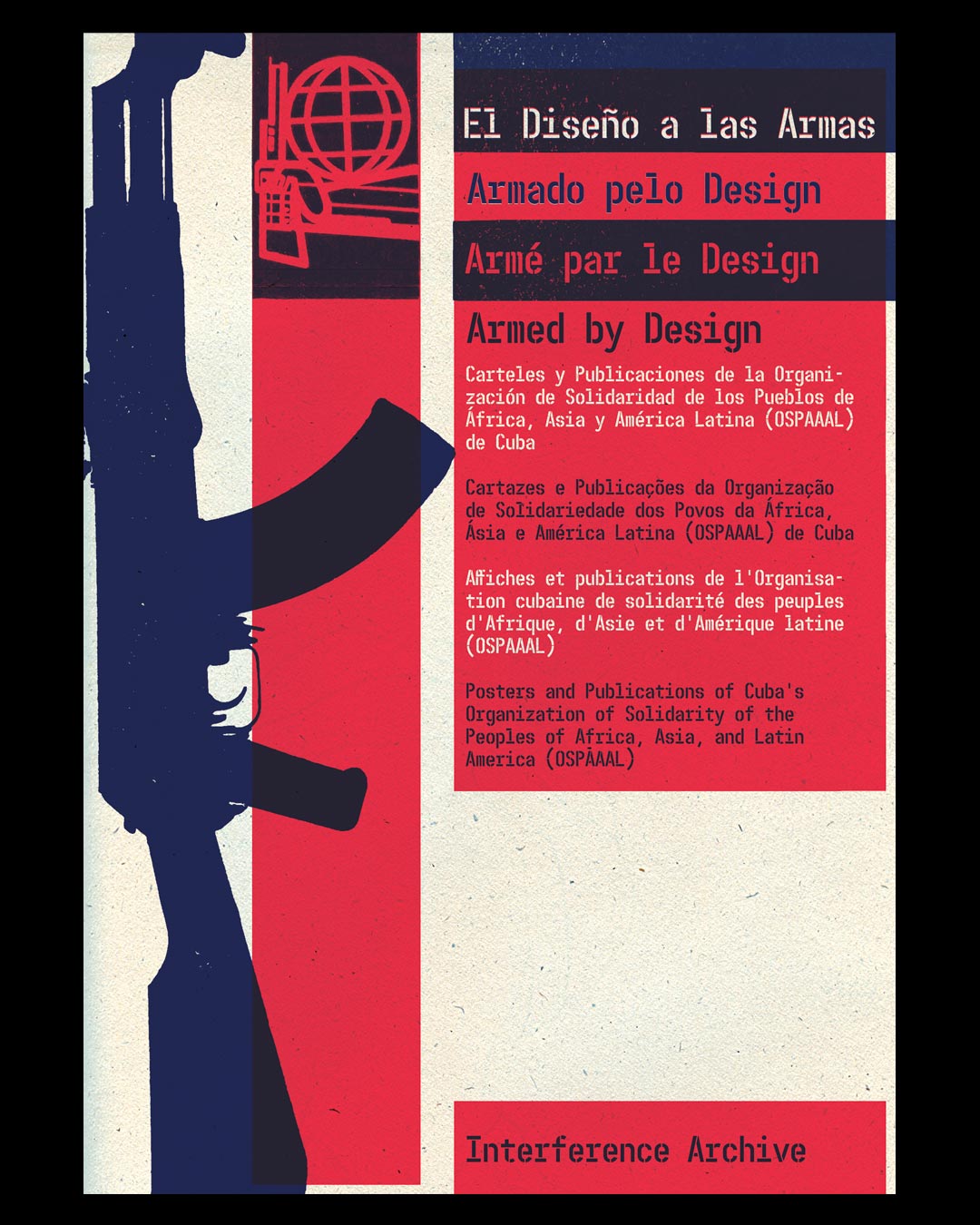Interference Archive and Common Notions need your help to publish a new, expanded, and amazing edition of Armed by Design, the most comprehensive book on the publication program of Cuba’s Organization of Solidarity of the People’s of Africa, Asia, and Latin America (OSPAAAL).
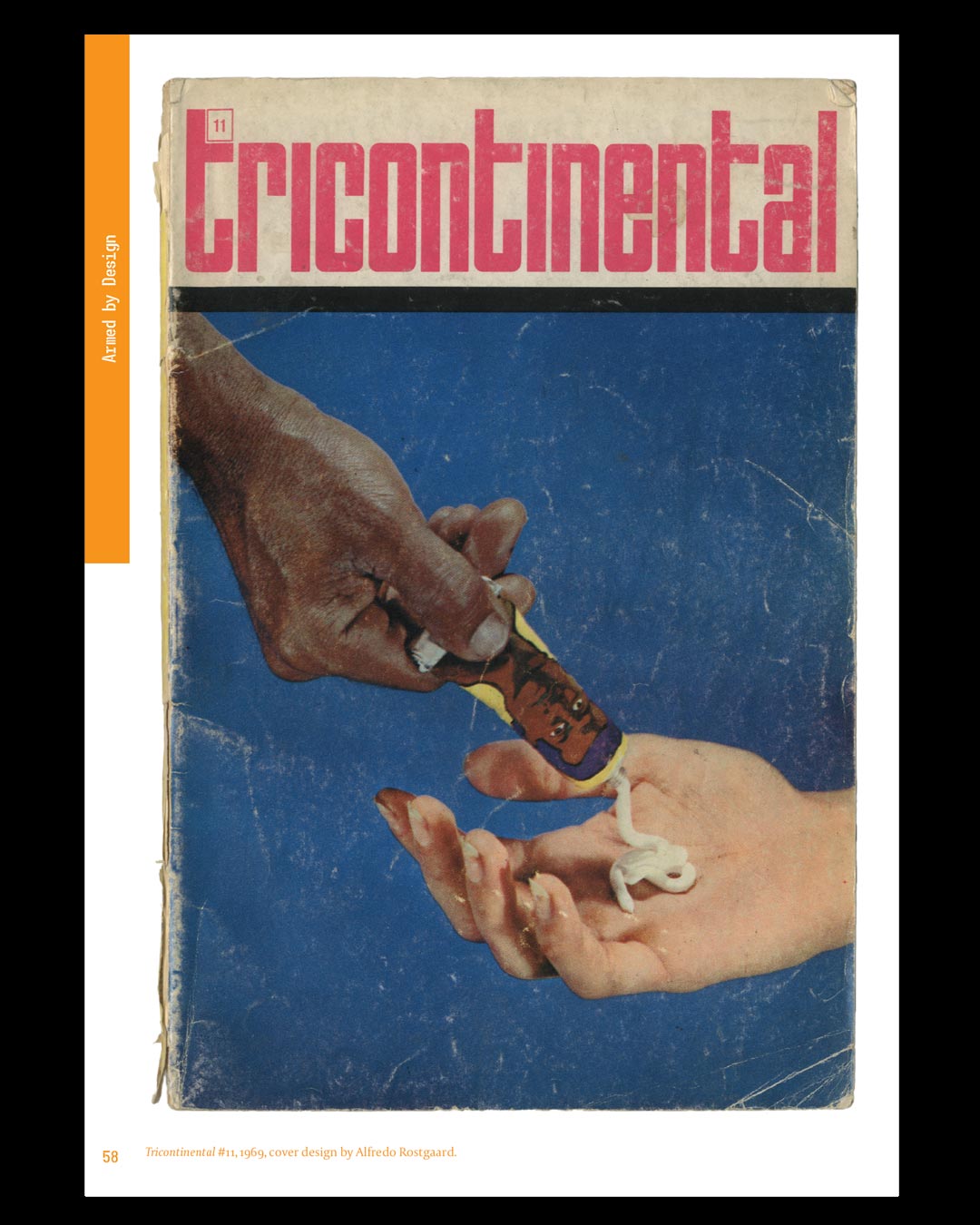
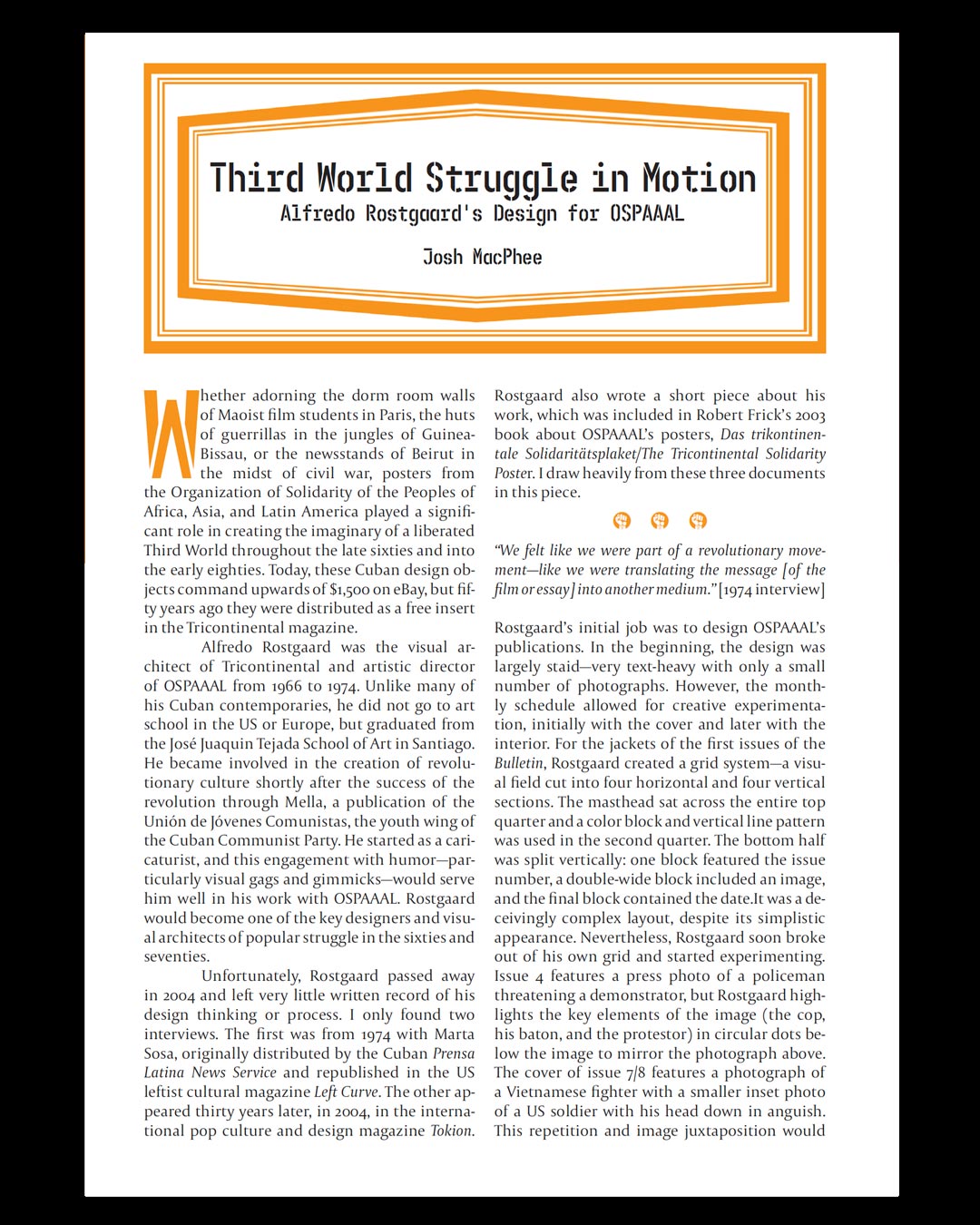
Buy a copy HERE now!
About this project
Armed By Design is a book, forthcoming from Common Notions in 2024, that aims to reorient dialogue about internationalism, solidarity, communication, and art by exploring the legacy of the Organization of Solidarity of the Peoples of Asia, Africa, and Latin America (OSPAAAL).
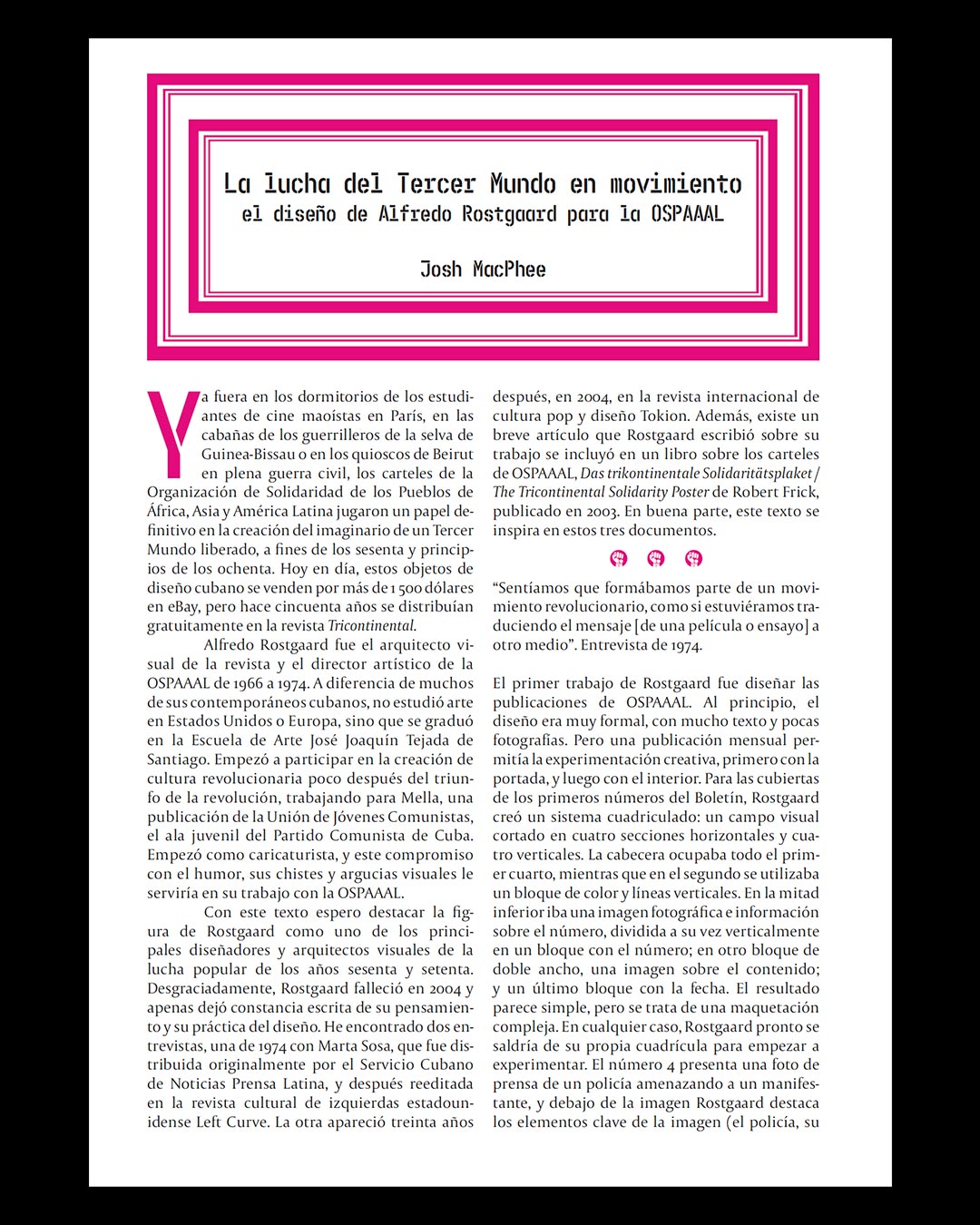
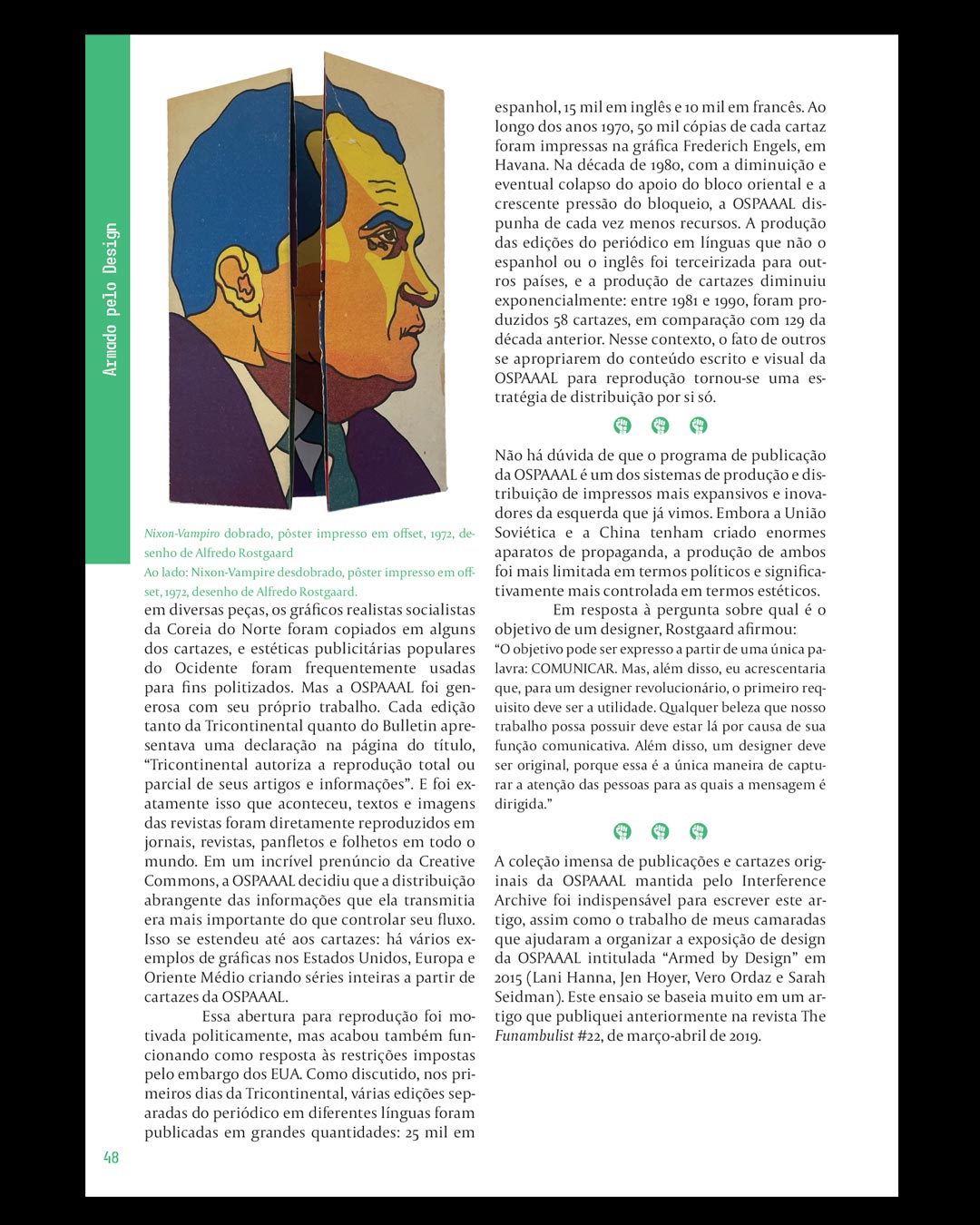
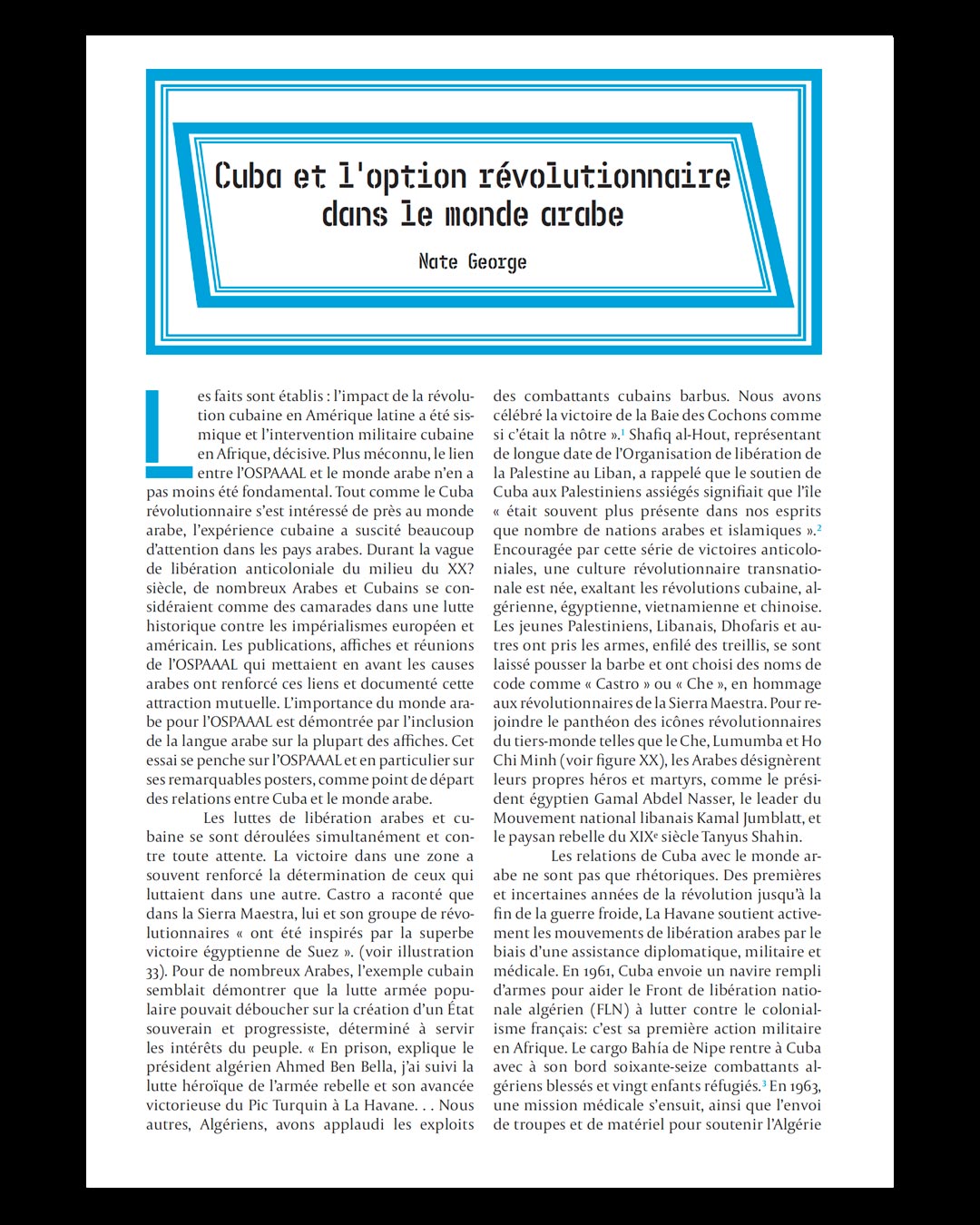
What is OSPAAAL?
OSPAAAL was a Havana-based organization that produced nearly 500 posters, magazines, and books from the late 1960s through 2019 showing solidarity with global liberation movements. The organization developed out of the 1966 Tricontinental Conference, organized in large part by Moroccan revolutionary thinking El Mehdi Ben Barka, who was assassinated shortly before the conference. Their offices in Havana remained open, with support from the Cuban government, until they were shuttered in 2019. Their prodigious output circled the globe via multilingual posters, multiple language editions of two regular periodicals, and political monographs.
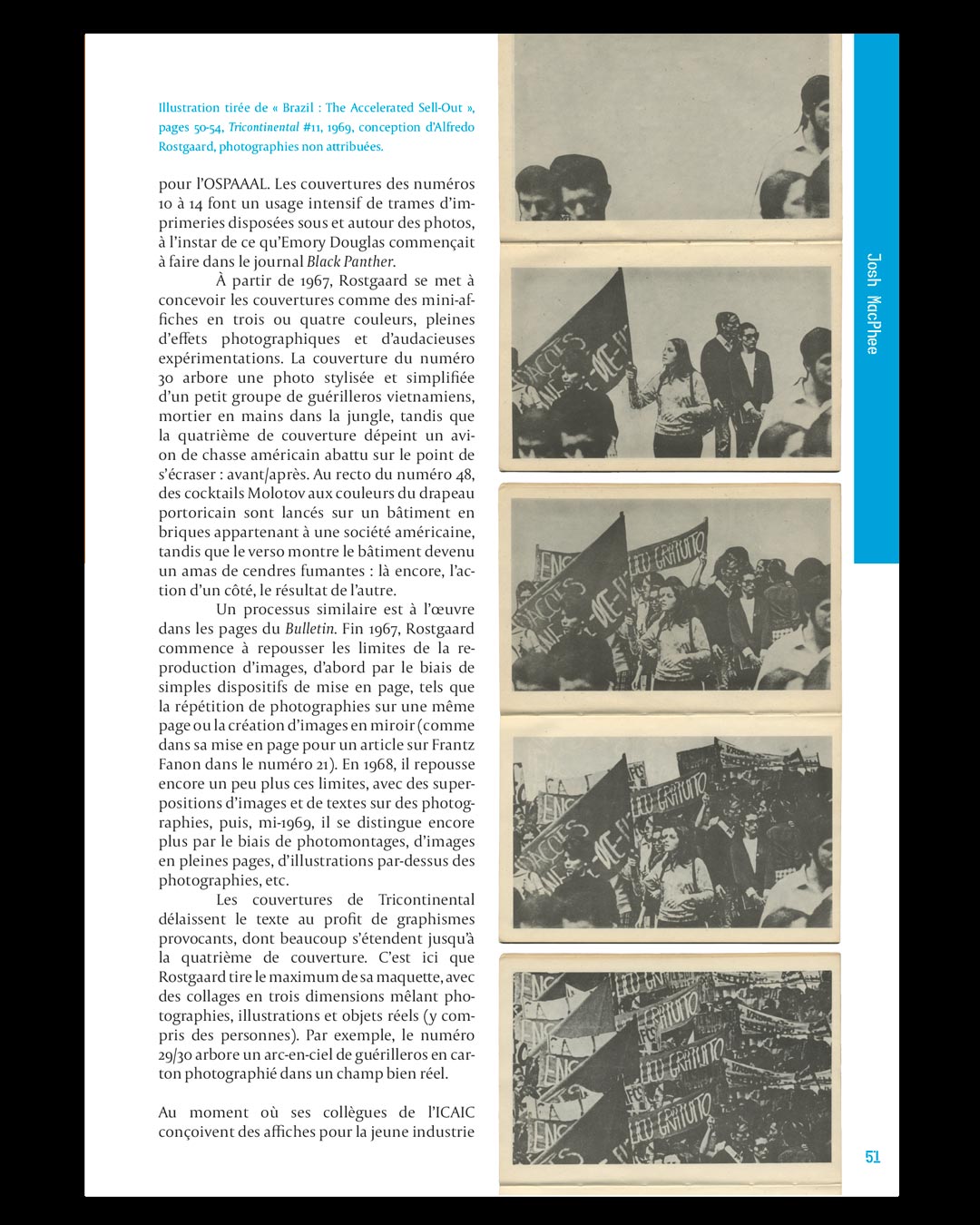
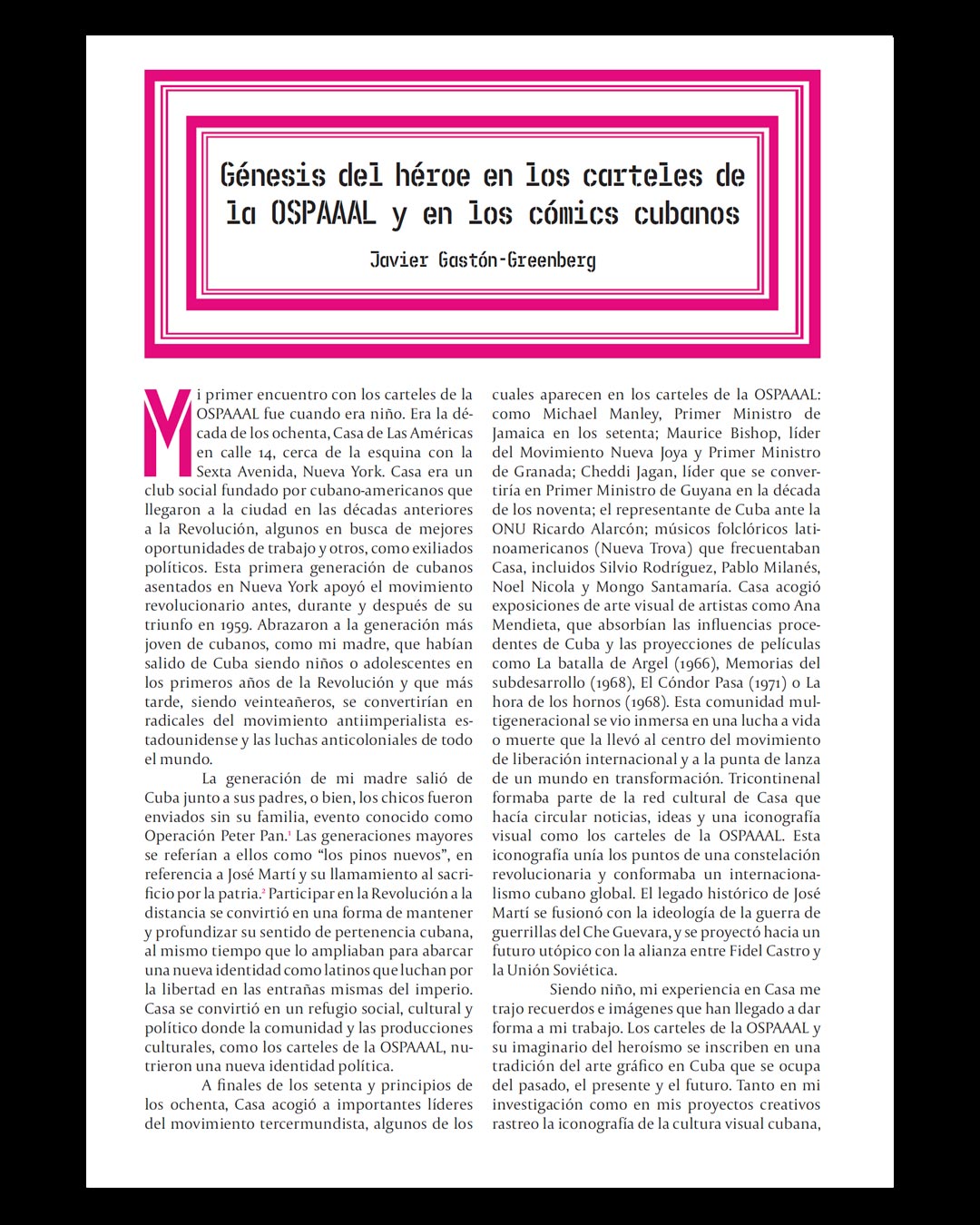
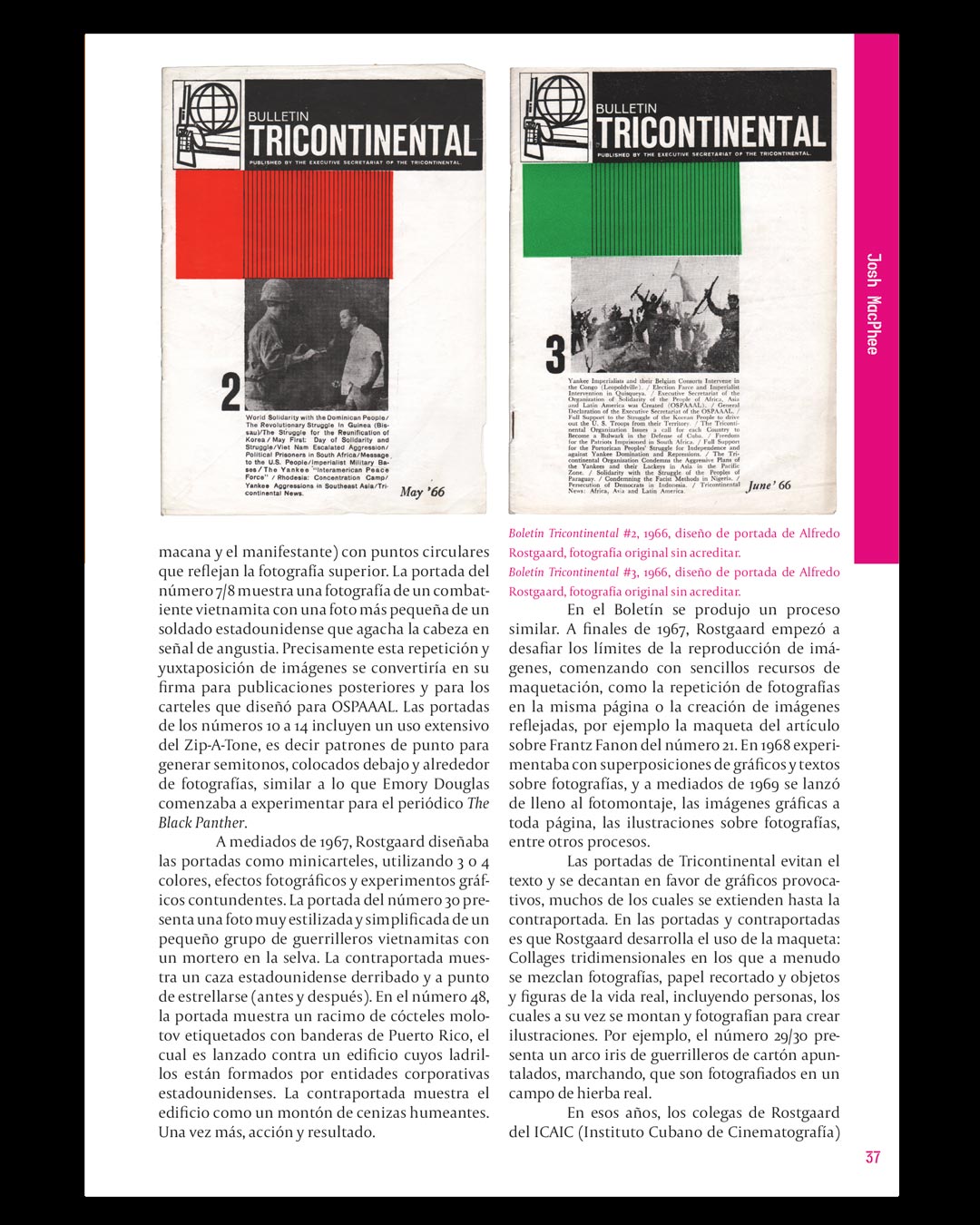
What is this project, and how is this book different from a similar project that Interference Archive produced in 2015?
In 2015, the editors of this book worked on an exhibition and publication called Armed By Design at Interference Archive (https://interferencearchive.org/). That small publication had a limited print run and sold out years ago—if you got your hands on a copy, consider yourself very lucky! Our new book builds on that work as well as on conversations and projects we’ve undertaken since then.
- What’s the same? This edition reprints earlier essays by Lincoln Cushing and Jesse Maceo Vega-Frey, as well as an interview with artist Jane Norling.
- What’s different? While we’ll be including essays written in 2015 by Sarah Seidman and Nate George, those have been updated by the authors to reflect their more recent research.
- What’s new? We’re excited to include brand new contributions by art historian Sohl Lee on OSPAAAL posters and the North Korean-Cuban Alliance; by Javier Gaston-Greenberg on OSPAAAL influences in Cuban comics; by Ernesto Menendez-Conde contemporary artists reuse of political graphics and interplay with OSPAAAL’s output; by André Mesquita on archives and solidarity; and by curator Joseph Orzal on OSPAAAL’s place in current conversations about organizing and activism.
- This volume also includes a brand new visual index to OSPAAAL’s Tricontinental publications, with an introduction by Lani Hanna and Rob McBride, as well as a new introduction by the editors.
These contributions reflect on impacts of OSPAAAL’s work on regional movements including in the Arab world and Korea, design iconography, the evolution of tricontinentalism, our present-day relationship to OSPAAAL posters as a commodity, and authorship and reproduction. While academic interest in the work of OSPAAAL and the legacy of tricontinentalism has grown in recent years, this book aims to speak to a broader range of artists, scholars, and community organizers.
Together, these multilingual contributions are being translated so that all content appears in four languages (English, Portuguese, French, and Spanish), mirroring the multilingual design of OSPAAAL’s own work.
What does it mean to build solidarity in our publishing practices?
While we’re excited to foster more conversations about the legacy of OSPAAAL, this project has also been an opportunity for us to experiment with the method and practice that OSPAAAL followed in their publishing work. While their headquarters in Havana generated an impressive level of content, they also partnered with printers and publishers in other parts of the world to generate other language editions and to print for foreign distribution.
When setting out on this project, we asked ourselves: how can the practice of publishing with others be a way to build political solidarity? To explore this, we’ve developed relationships and connections through el rebozo editorial and tumbalacasa ediciones in Mexico and sobinfluencia edições in Brazil, as well as individuals in Québec and France, to have translate and copyedit all content into four languages. This has been an opportunity to ask ourselves: what does political translation look like? How do we collaborate on projects across contexts that have wide resource disparities? How do we continue conversations about OSPAAAL in a way that builds on their commitment to liberation?
This is where you come in
While we’ve gotten so far—we’re almost ready to print this thing! —with support from a few small grants, we need more money to print this book. It’s going to be beautiful: nearly 400 pages of text including over 200 full-color reproductions of OSPAAAL designs, including a visual index of their publication covers as well as dozens of their posters.
Printing something like this is expensive, but it’s also an opportunity for us to think about how solidarity is part of the economics of our project. Our goals right now are:
- To make this book available to readers across North America at a price that is affordable to them
- To make this book available for our publishing partners in other countries to print and distribute at a price that is manageable for their local markets
How can you help make this happen?
- Preorder your own copy for a discounted price of $35; preorders will ship on December 1, 2024.
- Do you work at a library, museum, or other type of institution that has a budget for purchasing books? Please consider purchasing this title at our $50 institutional preorder price.
- Add a solidarity copy! Purchase your copy for $70 in order to support someone else also receiving an affordable copy. Preorders will ship on December 1, 2024.
